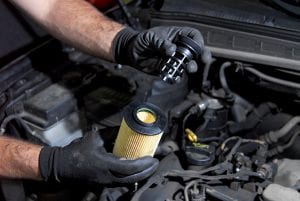To benefit cost control, asset reliability and health and safety, implementing and managing preventive maintenance (PM) programmes can result in successful fleets. Fleet vehicle maintenance is essential to reduce the possibility of higher costs for breakdowns and repairs, technical errors and reliability.
Preventative maintenance is a maintenance process which is carried out regularly on physical assets to reduce machinery downtime, save costs and reduce potential damage. These processes are typically planned beforehand and performed whilst the equipment is still in working order.
Why your vehicle needs preventive maintenance
A quality preventive maintenance schedule should prevent equipment from dying unexpectedly, reduces cost, saves time, and ensures a vehicle runs smoothly, efficiently and productively. PM maintenance comes with a range of benefits and is essential for vehicle quality and longevity.
- Improved health and safety
- Equipment lifespan
- Improved productivity
- Reduced Cost
- Reduced and improved energy consumption

Preventive maintenance best practices
Follow up on inspections
Any preventive maintenance programme is operated due to results from regular inspections. These can include mandated inspections by drivers before a trip or trained maintenance personnel during yard checks or designated inspection lanes. These inspections are key to finding and repairing areas to prevent a breakdown or other costlier.
Scheduling for success
Instead of waiting for an issue to arise, a preventive maintenance programme should consist of scheduled checks based on mileage, engine hours or fuel use. PM services are commonly introduced to improve detail and complexity as vehicles age or acquire mileage. This can also have an impact on the status of service and the amount of time taken to complete work. Having an effective fleet maintenance programme in place is essential in preventing problems before they arise or potential issues related to safety or injury such as car battery failure.
Assisting and training technicians
For a preventive maintenance programme to be successful, technicians must be accurately trained with an understanding of the PM process. Routine refresher training is popular with many companies so training covers new programmes, tools, technologies, systems and modern vehicles.

Using data to enhance the effectiveness
Utilising data to track the effectiveness of preventive maintenance programmes can help the success and improvements in the future. This information provides accurate insight to manage maintenance operations and make adjustments.
Planned preventative maintenance
Knowing when to use preventative maintenance is a huge factor in its success. This timing will depend on the equipment and operation needed. Creating a solid schedule will help to ensure these maintenance checks are carried out before any issues arise, not after the damage is already done. Assets suitable for preventive maintenance include:
- Have failure modes that can be prevented
- The likelihood of failure increases with time
- Critical for production, operations or health and safety
Assets unsuitable for preventative maintenance include:
- Random failures that are unrelated to maintenance
- Do not serve a critical function
- Require costly repairs
Filter solutions by Filter Services
If you’re looking for an air filter installation service you can trust, get in touch with Filter Service’s team of experts today to find the perfect filtration option for you, your business or your vehicle. We supply filter solutions for a number of different vehicle types and industries including construction, commercial use, material handling and agriculture.
So whether you’re after an oil filter or cabin filter, our team are here to help! Just give us a call on 01246 802 822 and we’ll advise you on what your vehicle needs.
